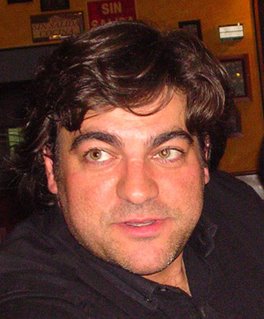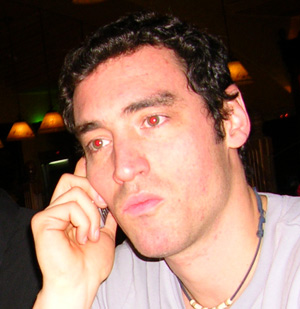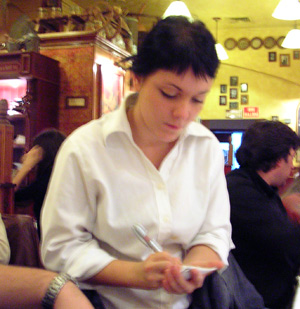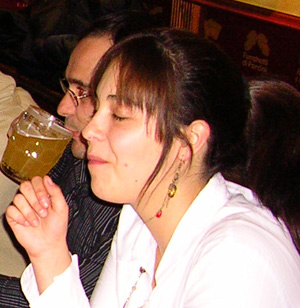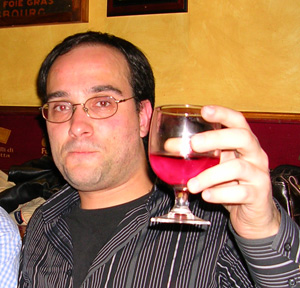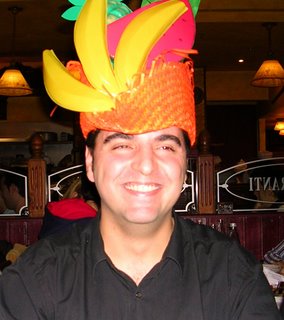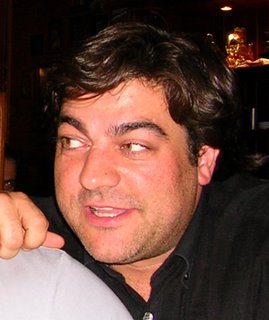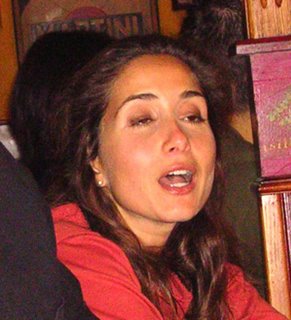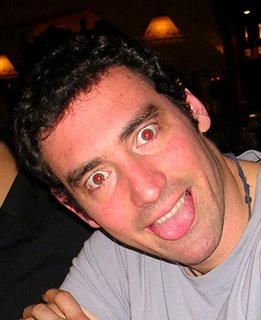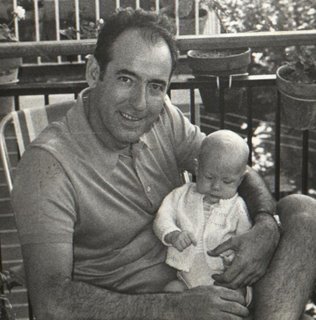When I first thought to do my own blog, I decided I should write in it all those things that suddently occur to me and I never get the chance to discuss or expose because the appropiate forum isn't at hand. Usually on fridays (probably due to tiredness), I feel specially philosophical and this place allows me to give all this an escape valve.
First and foremost, I would like to apologize to anyone who might feel offended by my words as my only intention is to offer my thoughts which, because of my social upbringing, obviously lack the experience that may otherwise make me view things with a different eyeglass. I do not wish to offend anyone nor any collective opinion.
Today I want to discuss a matter that has been in my mind for some time: war. Meaning war as a concept, not war in Irak, nor any other real example of war, but war in general and concepts arising from it and so on.
I am currently reading the second book of the Legends of Dune by Brian Herbert (son of the original creator of the Dune saga, Frank Herbert) and Kevin J. Anderson. This trilogy of books (comprising "the butlerian Jihad", "The machine crusade" and "The battle of Corrin") tell the epic story of the struggle between humankind in the galaxy and a society of inteligent machines born from the hand of man himself. The firs question that arises to me is why are we still so fascinated by stories of wars, fightings and death? It must be something in our own nature.

Today's discussion arises from a DeviantArt image exposed by my own cousin
Glen. In it we are shown a legend of a memorial for those fallen in war (from the WWII, I think) where we are encouraged to remember those who died for us. Analyzing the concept of war memorials I am forced down two main lines of thought to justify these reminders.
On one side are those people close to those fallen in combat who wish to give meaning to something that cannot have meaning for them. Have all those who fight suffered direct greviance from the enemy they are fighting? In such case, why do both sides lift memorials to their fallen warriors? Are we not all taught that our own side was the right one? Which one is true?
On the other side is the blade of the political weapon represented by these memorials, that attempt to remain timeless and justify something that may have had its sense in its time... or not... In Spain we all know the greatest monument to fascism (and I use the term as a political thought designation): El valle de los caídos (The valley of the fallen, built in the time of Francisco Franco, the fascist dictator, by the hands of a large number of political prisoners, many of which died in the process). It's own name indicates it should be a memorial built in honour of fallen warriors in a fight for high morals that justified the sacrifice of those who died. We only have to set out in the streets of Madrid and ask anyone about it. The opinions are as opposed as they are passioate in both senses.
However, what I ask myself is the real need for these deaths and others occurred in war times, as I also question the moral validity of these monuments. Do they give meaning to the deaths? In my humble opinion, they don't. Did ever a loved one of one of these fallen ones (wether warrior or innocent bystander) think "Thank God! I feel so comforted now they have built this huge thing as a memorial to my loved one. I feel so much better!". I may be naive, but however big the monument was, I wouldn't feel comforted for the loss of someone close to me. Further, I would feel more offended the bigger the monument was.
One could even say these memorials can justify new war actions against those who offended us and who tainted our memory by "murdering" our loved ones (If you are on the side that started the conflict, does that mean you cannot lift memorials?), reminding us of the offense and who fought to defend us. If we remember that many of these monuments are lifted for political reasons, doesn't that rather remind us of the futility of their deaths?
Going back to the stories by the Herbert family, and thinking also of those written by George Orwell in his famous novels
1984 and
Animal farm, human beings can find means to justify the most inhuman actions with the highest moral values that define us as beings above animals. This contradiction in terms can be seen every day in the news.
I will refer to present day situations. I frequently see in the news (which is why I decide every day I will watch the news no more....) that jews have launched a new offense that ended with the lives of X people murdered (reducing people to a mere number... How horrifying!!!). Still now a days we are shown feature films (such as Schindler's list, etc) which reminds us how millions of jews were massacred for reasons that, for the murdering side, were justified!! Y GODD!! HOW CAN THEY JUSTIFY TO KILL SO MANY?!?!? Err... I actually think the very same thought every time a bomb explodes in Palestina!
Isn't there any other way to resolve the conflict?
(On a more national point of view) How is it possible that a political party can
critisize another because they are
TALKING in order to solve an armed conflict? If we want the problem with E.T.A. to be resolved
is there really any other way?. Didn't the irish only ever get to solve their problems when they put their weapons aside and sat down to talk about it?
So, as Glen's picture says, whenever you find yourselves in front of a memorial that remembers those fallen in an act of war, and I include those fallen victims of terrorist acts, which are the SAME kind of victims as honorable warrior killed in action, do yourselves and humankind a favour: stop and think of them and how they died...
... for you...
... even if you never asked them to die for you...
... even if they died for something you think is a just cause...
... because their lives ended in a day such as today, in a moment such as right now, in a life very much like your own... Was it really worth it? Did it give them honour? Woudln't have they prefered to live a little longer? Who decided they should die for you?









